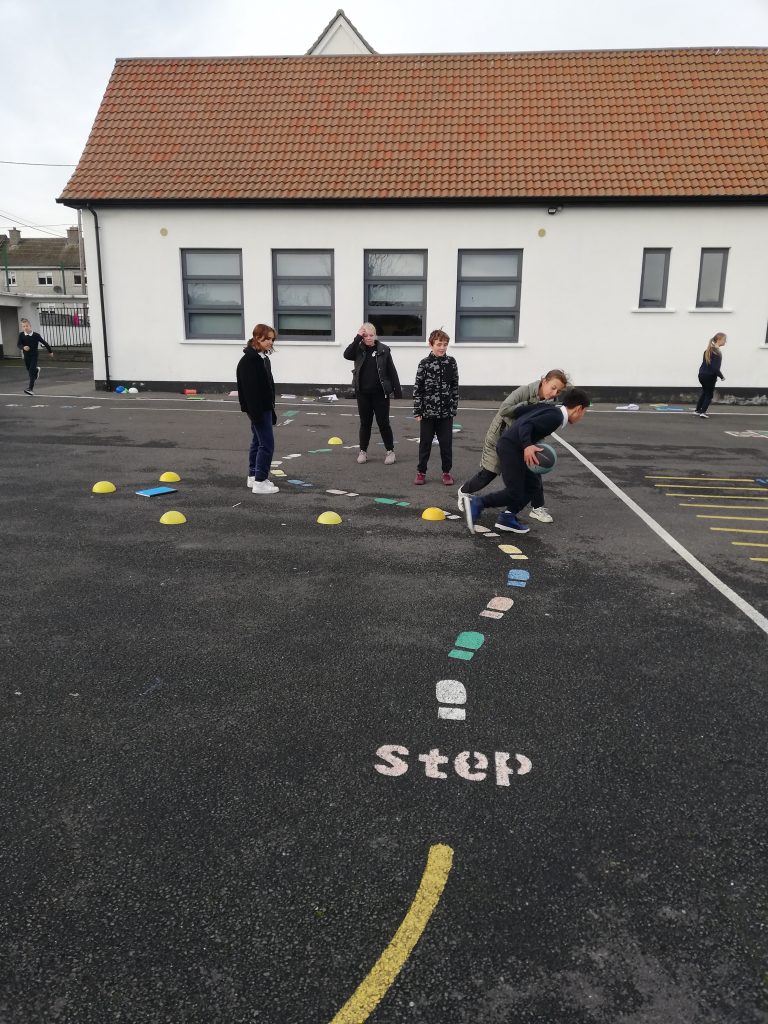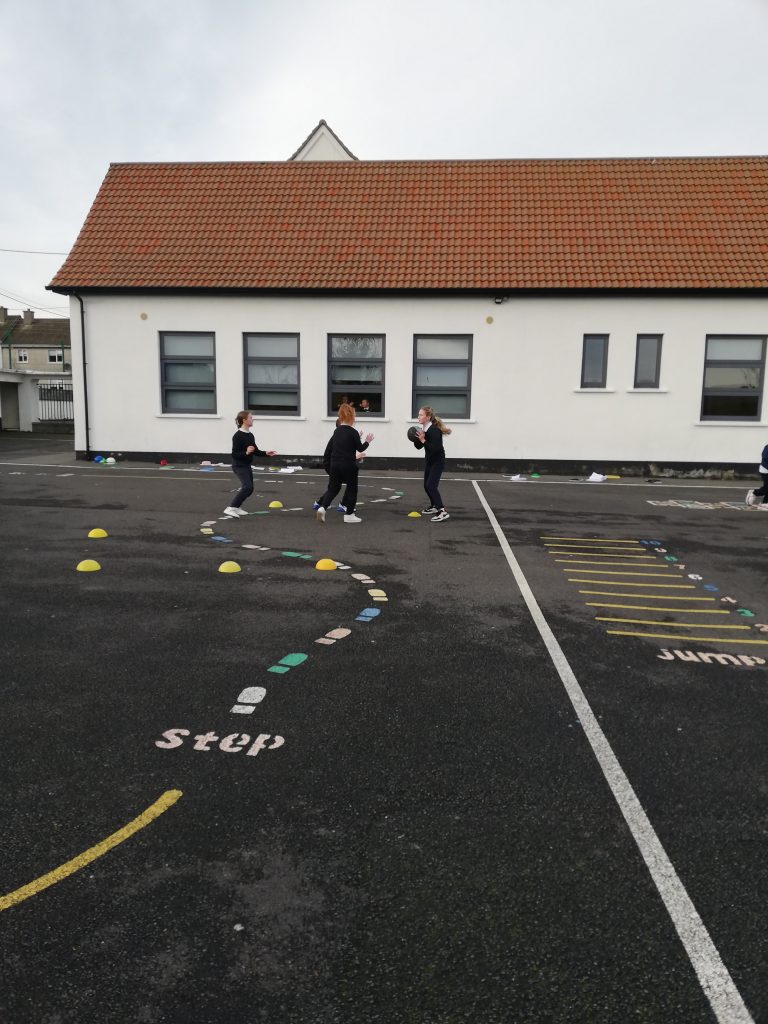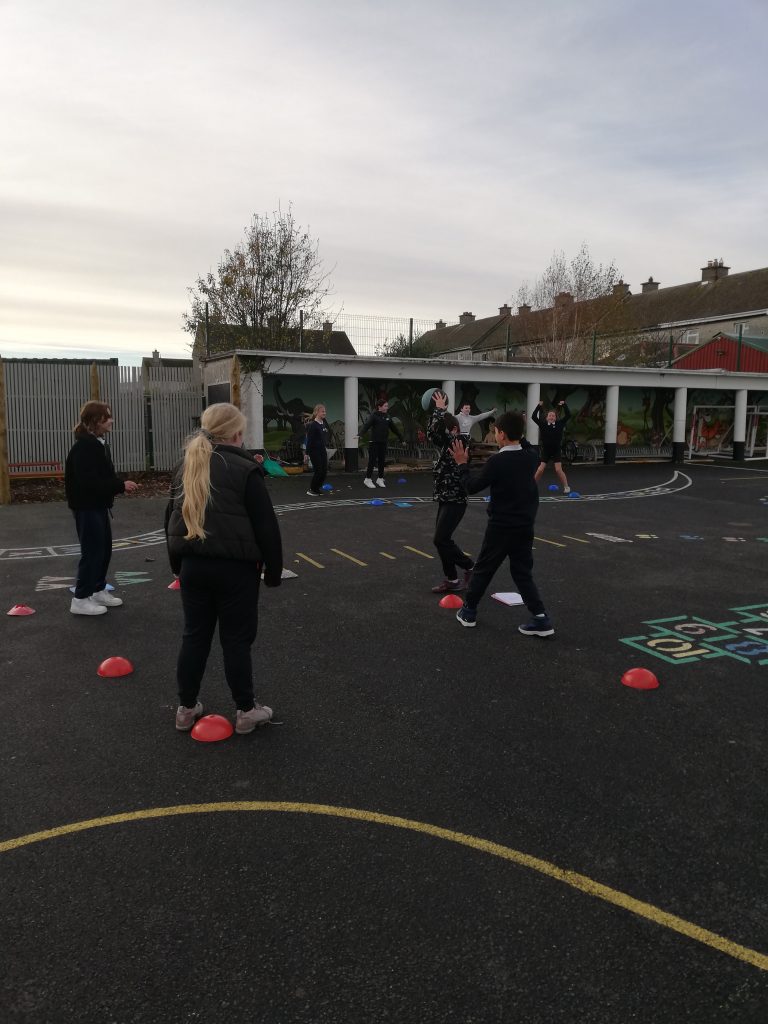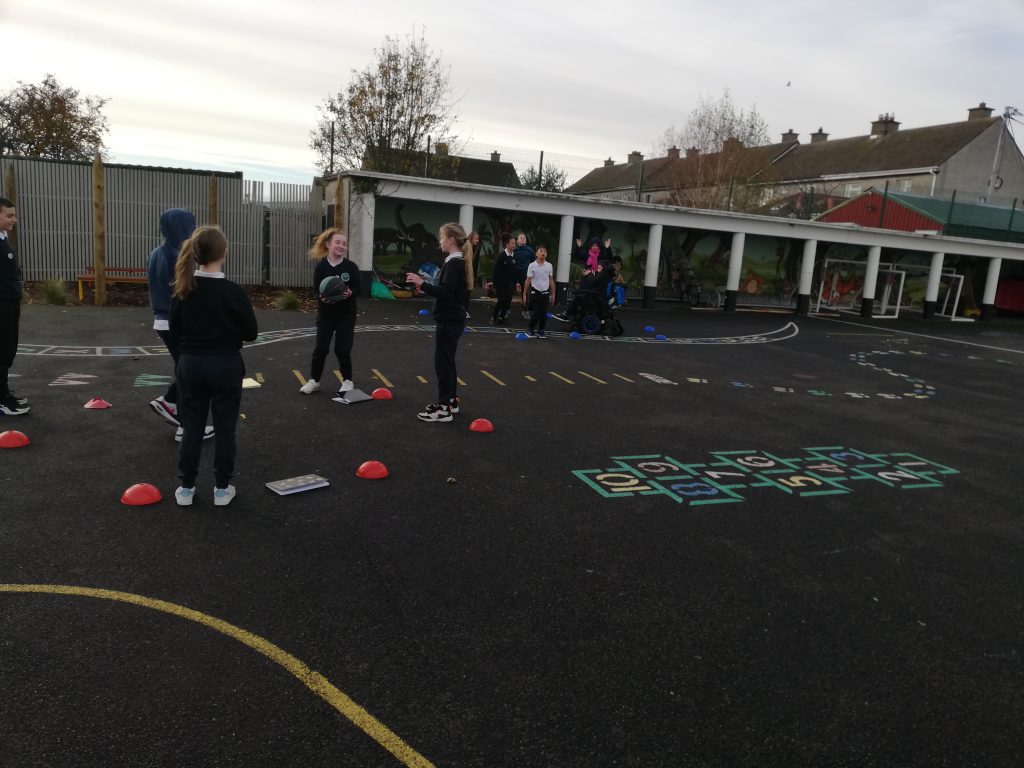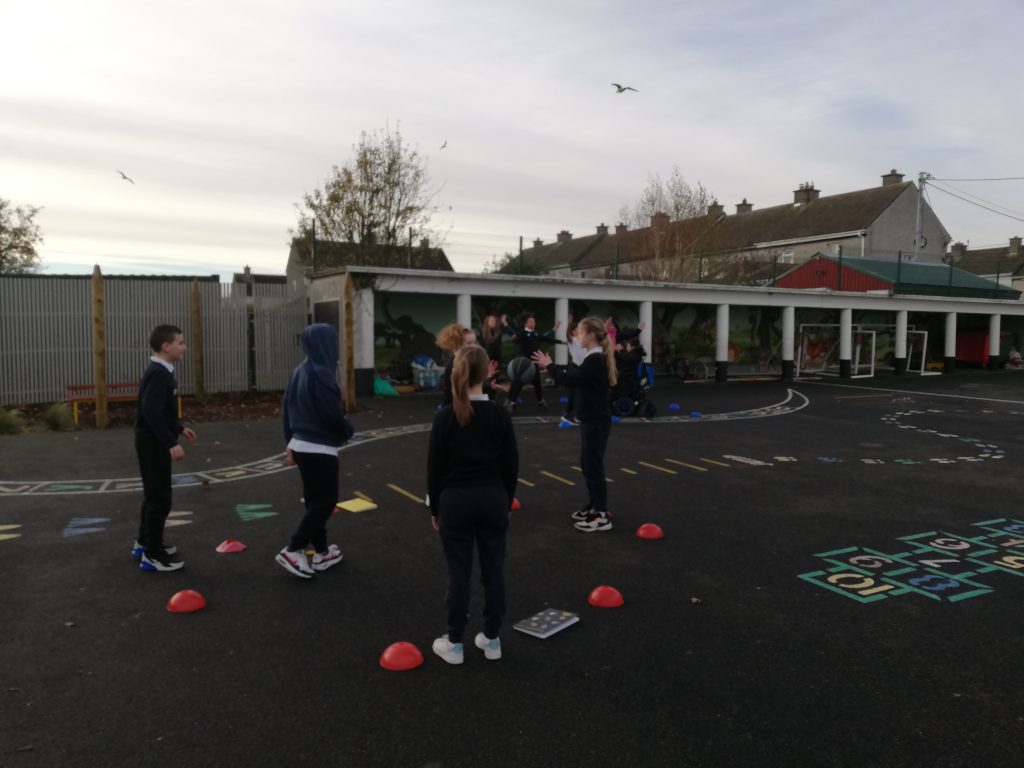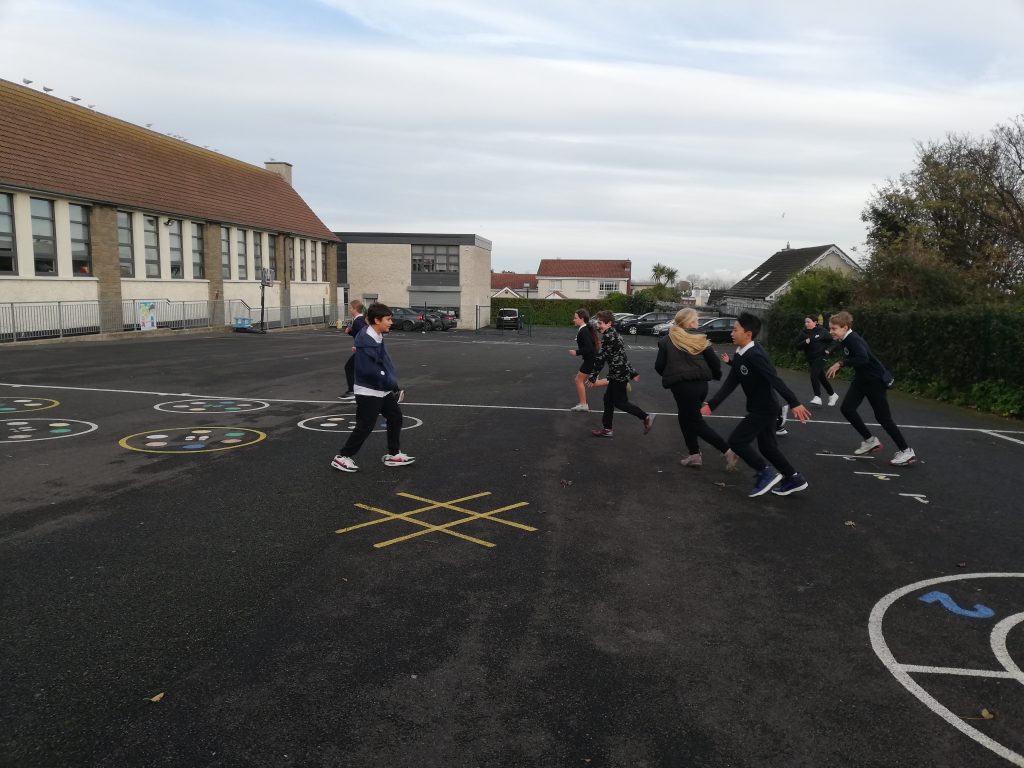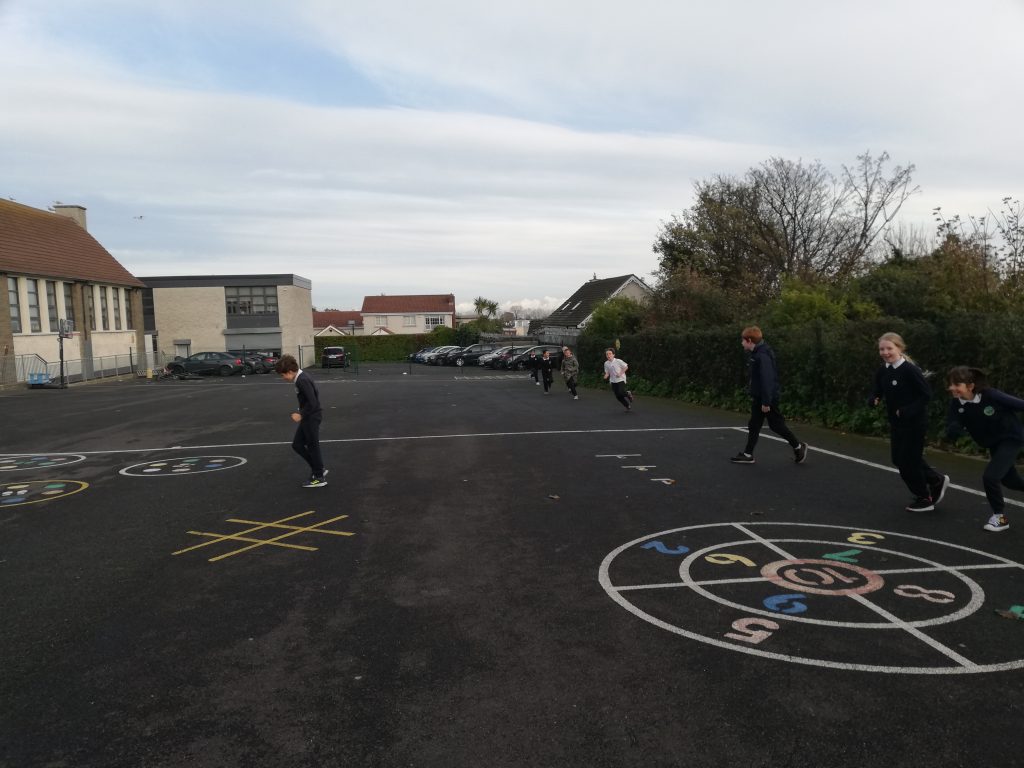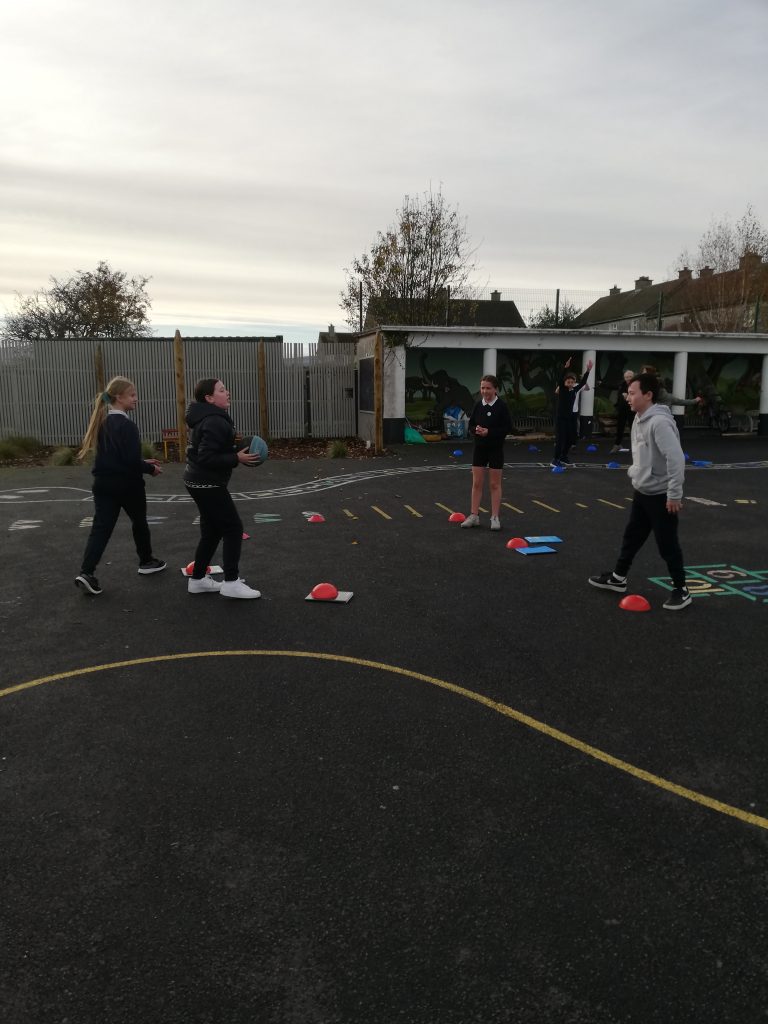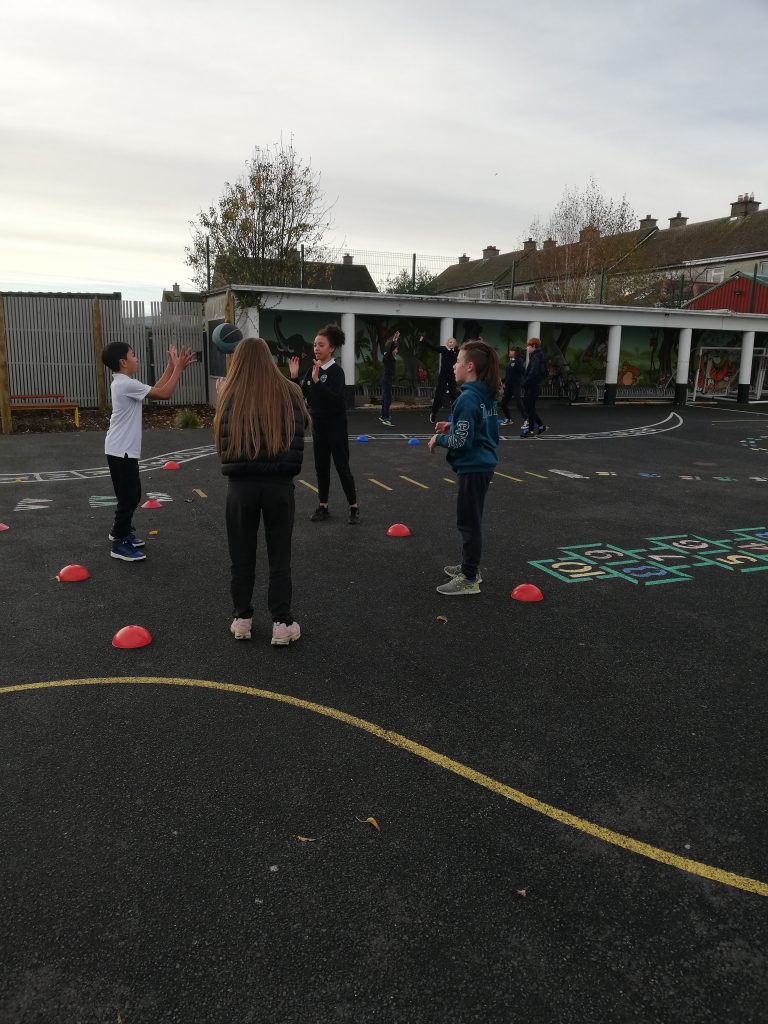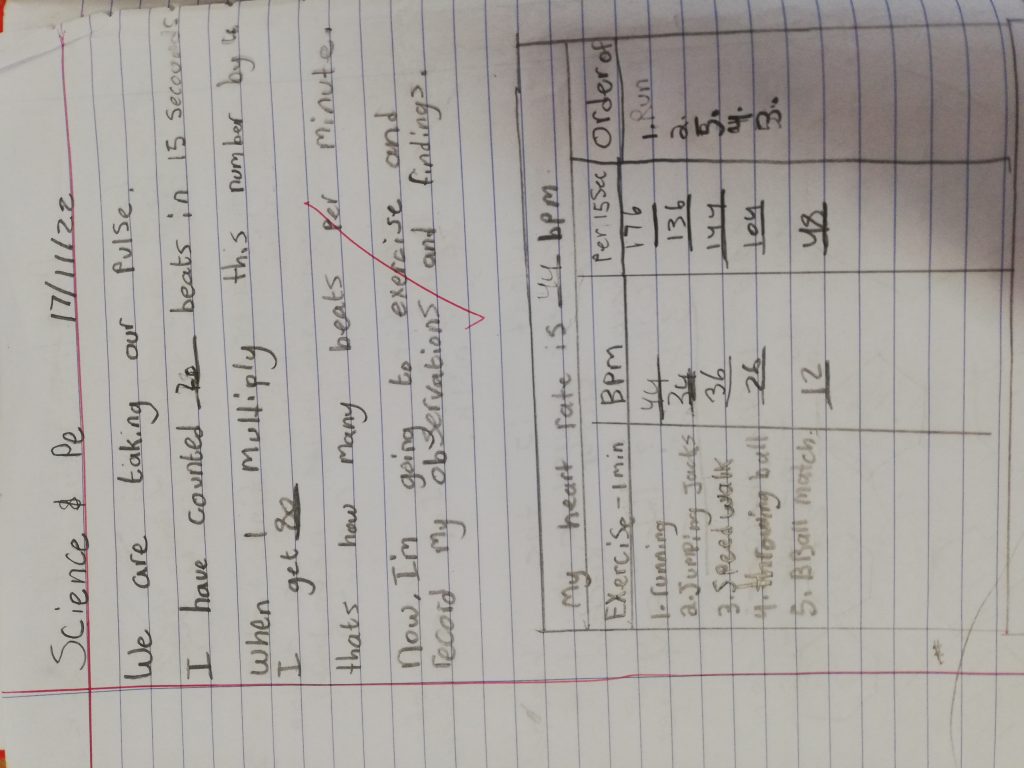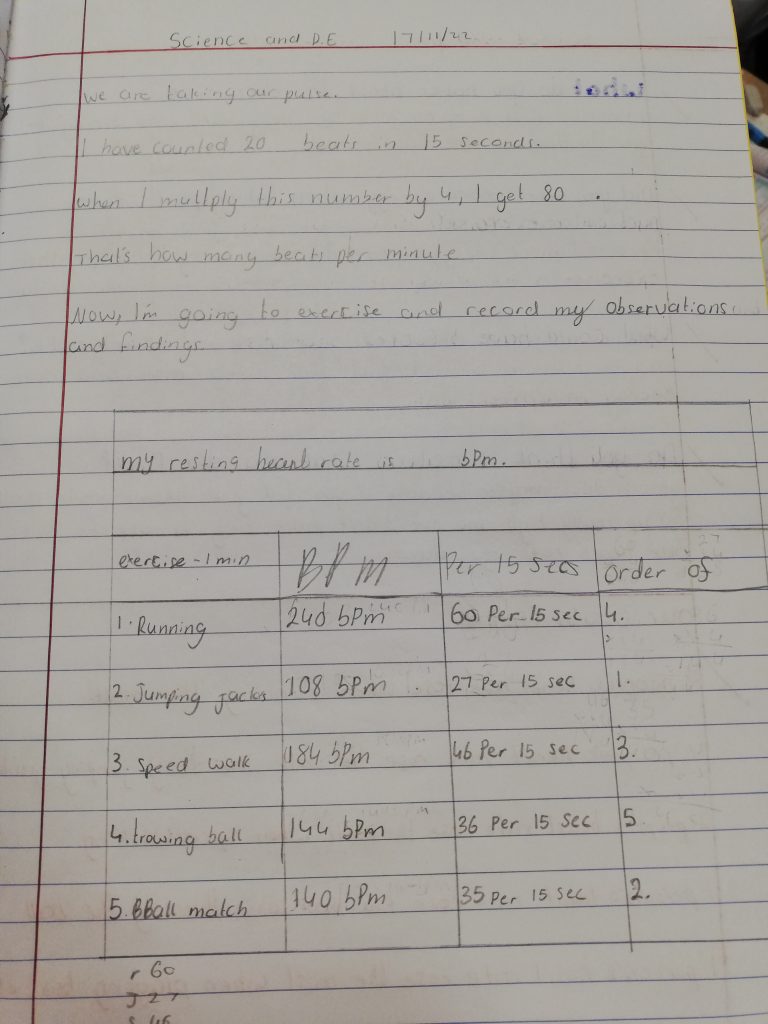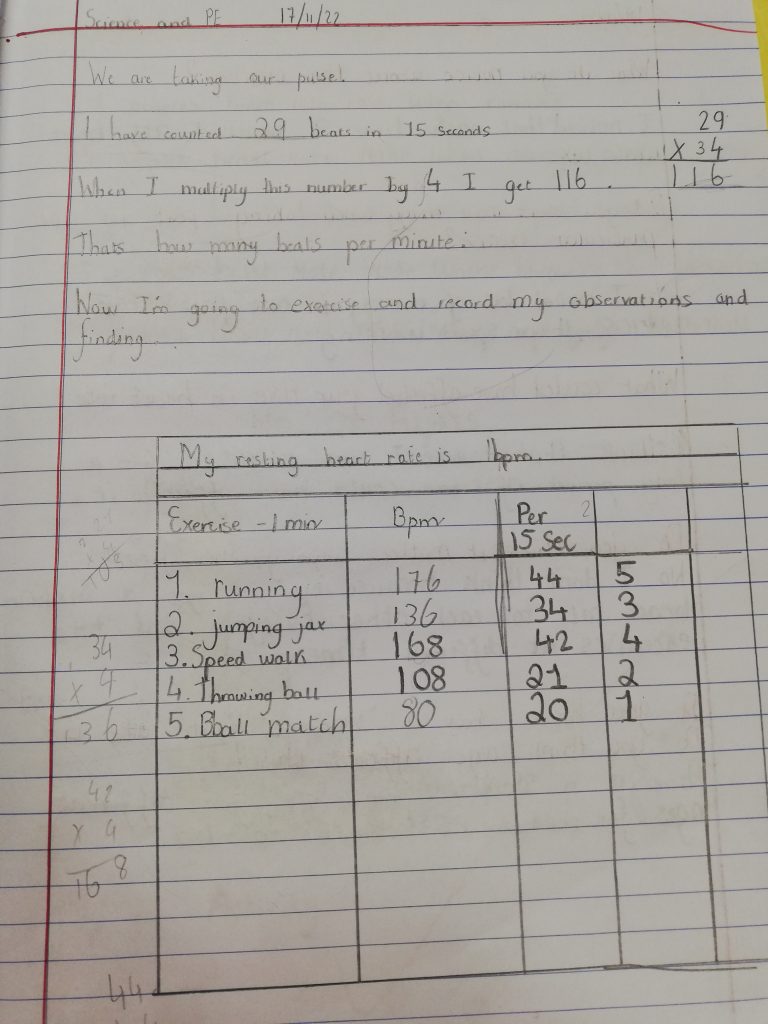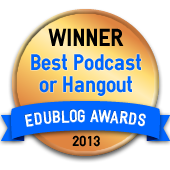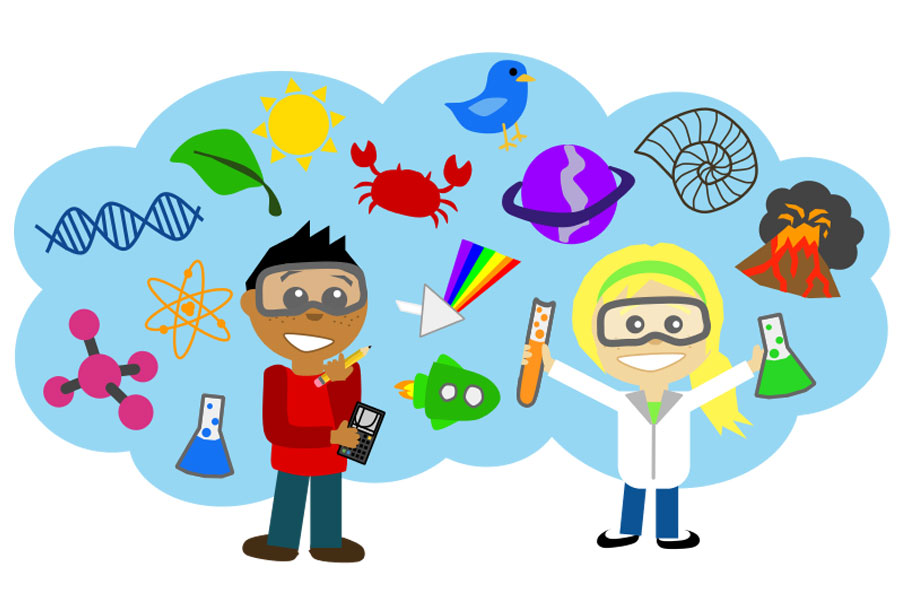
We had a great time investigating and discussing all things scientific this year!
One of our favourite activities was when we linked our PE lesson with Science. We decided we would investigate our heart rates and the impact that certain exercises and activities have on our heart rate.
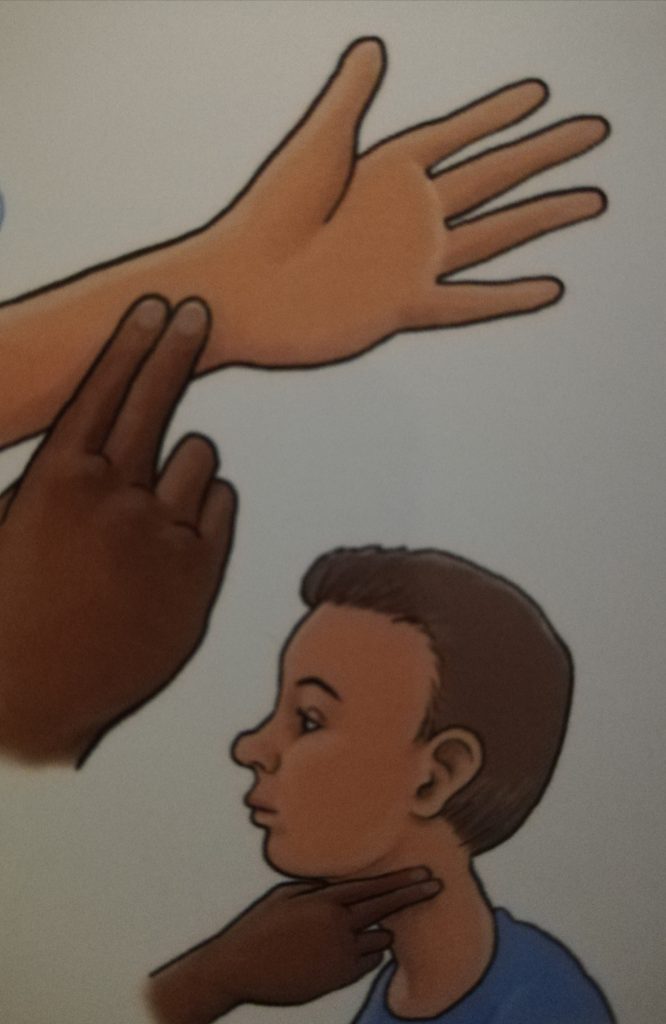
To begin with, we discussed and took our ‘resting’ heart rates. This was a little bit tricky at first (some of us were worried we didn’t have any 😅) but after some perseverance we became comfortable calculating them. We did this by counting the beats per minute we could feel on our wrists (use your right index and middle finger on the palm side of your left wrist) and necks (just below our ears and jawbones) – we counted for 15 seconds and then multiplied by 4 to get the BPM. We questioned why some heart rates are different and considered variables such as age, amount of exercise done daily and perhaps feeling nervous, stressed or indeed, relaxed.
We recorded these resting heart rate scores, and decided on some exercises that we wanted to put to the test, over the course of 1 minute each! We chose running, mini basketball, jumping jacks, throwing a ball and speed walking. We also made some predictions, including what exercises would raise our heartrates most and what we should observe after completing all 5 exercises. We decided to do the exercises outside and brought a stopwatch and our notebooks to record our results.
Our results were interesting and differed depending on the individual. We also think the order of the exercises may have affected our heart rates. For example, doing running and jumping jacks in a row, meant that our heart rates tended to stay up for longer.
Exercise and physical activity causes the heart rate to increase in order to supply the muscles with more oxygen to produce extra energy. Cardio/ running had the greatest effect on increasing the heart rates of the majority of class, as you can see from our results.
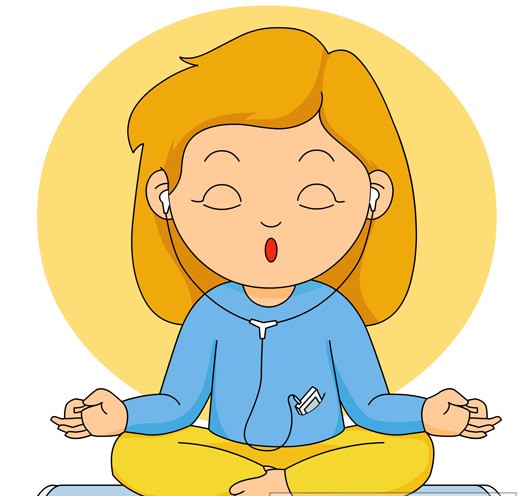
We’re going to take part in some mindfulness exercises next, to see what effect relaxation has on our heart rates.

